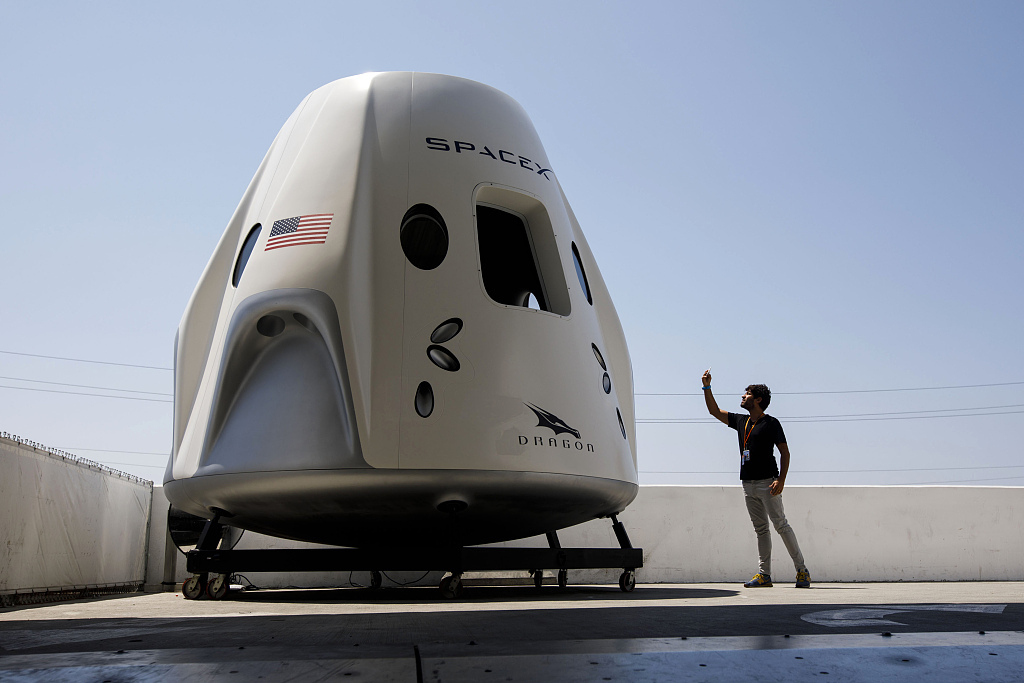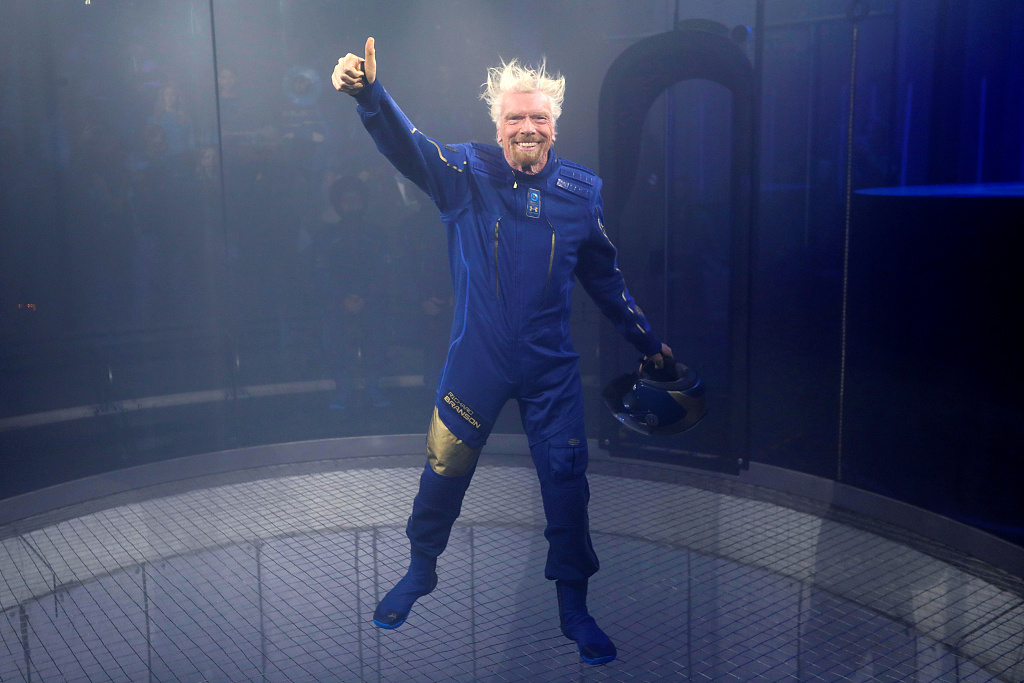In Baltimore, United States, 600 future astronauts from 60 countries have started training for their first flight to space. They are not professional astronauts, but part of Virgin Galactic's first group of paying tourists ready to explore the next frontier in tourism — space.
The company wants to make space travel commercially viable in the near future. For now, each passenger is paying an eye-watering 250,000 U.S. dollars for a 90-minute flight. It will allow those on board to experience zero gravity and see Earth from space.
Just a little under 60 years ago, Russian cosmonaut Yuri Gagarin became the first human to journey into space during the Space Race. Fast forward to today, there is another space race, but between private companies eager to tap into space tourism.
The new space race
Virgin Galactic, owned by British billionaire Richard Branson's Virgin Galactic and former Facebook executive Chamath Palihapitiya, is currently leading the race in space tourism.
Earlier this month, he listed his space travel company on the New York Stock Exchange. And more recently, it announced that Boeing, the U.S. airplane maker, will invest 20 million U.S. dollars into the company.
Amazon and Tesla are also trying to get a slice of this space cake.
Blue Origin, founded by Amazon chief Jeff Bezos, is gearing up for its first flight next year, according to CEO Bob Smith in an interview with CNBC. And a ticket will be pegged at hundreds and thousands of dollars. "We're going to start at a high price point and go down from there," Smith continued.

An attendee takes pictures of a mock up of the Crew Dragon spacecraft ahead of the NASA Commercial Crew Program (CCP) astronaut visit at the Space Exploration Technologies Corp. (SpaceX) headquarters in Hawthorne, California, U.S., Aug. 13, 2018. Photographer: Patrick T. Fallon /Bloomberg via Getty Images
An attendee takes pictures of a mock up of the Crew Dragon spacecraft ahead of the NASA Commercial Crew Program (CCP) astronaut visit at the Space Exploration Technologies Corp. (SpaceX) headquarters in Hawthorne, California, U.S., Aug. 13, 2018. Photographer: Patrick T. Fallon /Bloomberg via Getty Images
Elon Musk's SpaceX has a far more ambitious plan in the pipeline. Besides space tourism and providing reusable capsules for NASA, the eccentric entrepreneur's grand plans include helping humanity become a multi-planet species.
These space tours are not just for the bottom line, however, they will also contribute to research as well, said one expert.
"You pay the money to go to space, but by doing this you also pay for science and research," said Marianna Sigala, professor in Tourism and Director of the Center of Tourism & Leisure Management at the University of South Australia Business School, to CGTN Digital.
"Because when the mission goes to space, it's not just the tourists going there. There are many scientists that will follow the spaceship, and their purpose there is to collect data and help research."
"They are exploiting the tourist industry to finance research," Sigala added.
Cashing in on space travel
This first step into space tourism could also have a multiplier effect on other industries. And countries are already jostling to be the first in becoming a space hub, so this multiplier effect can be seen in other industries.
Sending people into space requires massive specialized infrastructure, special diets, training and tailored spacesuits among other things, said Sigala.

Sir Richard Branson appears in a sky diving simulator as he wears Virgin Galactic's new space-wear system, developed in partnership with Under Armour, during an event to unveil the suits in Yonkers, New York, U.S., October 16, 2019. /VCG photo
Sir Richard Branson appears in a sky diving simulator as he wears Virgin Galactic's new space-wear system, developed in partnership with Under Armour, during an event to unveil the suits in Yonkers, New York, U.S., October 16, 2019. /VCG photo
"There are many different expertises and professions and industries involved around space tourism, the development of it is going to give a lot of jobs and a lot of economic development in the region," Sigala explained.
Collectively, these space tours are forming a body of research that will eventually enable humans to live on other planets. "This has been the purpose for centuries. We know whatever exists there in terms of resources, of land. And humanity is continuing to explore other planets to source materials to have another planet to live because the population here is becoming too large," she remarked.
For now, humanity's space dream is only available to those with deep pockets. But as these flights increase, and the technology is sharpened, more might be up for some Space Oddity.
(Cover image provided by VCG)